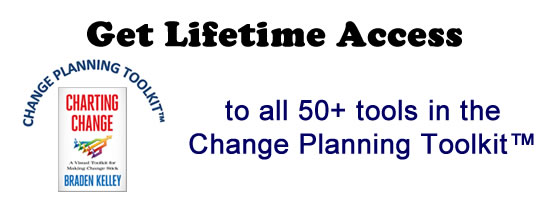Fairness, Trust, and Innovation Culture
As noted in previous articles (You don’t have an Innovation Problem, You Have a Trust Problem! Part 1, Part 2, Part 3), trust is the foundation for a culture of innovation, and a culture of innovation is the foundation for innovation and the financial results from it.

In this article, I will address one of the foundational components of trust: fairness.
Last weekend, I embarked on an experiment, based on Chris Voss’s negotiating book Never Split the Difference. On a Facebook poll, I asked this question: “A person was given $10. They must make you an offer of anything between $0 and $10. If you accept their offer, you both get to keep what you agreed to. If you reject the offer, you both get nothing. The other person decides to offer you $1. If you accept the offer, you get to keep $1 and they get to keep $9. If you reject–you both get nothing. Do you accept the offer?”
I then asked the same question, but with $2 (they offer you $2, and they keep $8), $5 (equally splitting the $10), and $10 (they give you everything, keeping nothing to themselves).
Here are the results. Three in four people accepted the $1 offer. It’s a simple, emotion-free, economic decision. Getting $1 (if you accept the offer) is better than getting nothing (if you reject it). However, the fourth person rejected the offer. It was not fair! I would rather take nothing than accept an offer that is so unfair and asymmetrical. The same people who rejected the $1 offer also rejected the $2 offer. Everyone accepted the $5 offer. But to my surprise, one in seven people rejected the $10 offer. They simply couldn’t take $10 while the other person gets nothing.

In the results (50 participants), I found exactly four types of people, even though 4 questions with 2 options each could give 16 different combinations. The majority (72%) were the economic decision makers. They accepted all four offers. To them, anything is better than nothing. 13% which my-side fairness seekers. They accepted the $5 and $10 offers. As long as the offer is fair to me, I will accept it. 10% were two-sided fairness seekers, who accepted only the $5 offer. They wouldn’t take an offer that is not completely balanced towards both sides. Finally, 5% of all participants were your-side fairness seekers, who would take any offer, as long as it isn’t unfair to you.

Unfairness is important enough for people to give up money they would have earned. It is also one of the foundational components of trustworthiness. If you are not fair towards another person, they will not trust you.
Trust me.
Image credit: Pixabay – dollar-3313761_1920
Wait! Before you go…
Choose how you want the latest innovation content delivered to you:
- Daily — RSS Feed — Email — Twitter — Facebook — Linkedin Today
- Weekly — Email Newsletter — Free Magazine — Linkedin Group
 Dr. Yoram Solomon is an inventor, creativity researcher, coach, consultant, and trainer to large companies and employees. His Ph.D. examines why people are more creative in startup companies than in mature ones. Yoram was a professor of Technology and Industry Forecasting at the Institute for Innovation and Entrepreneurship, UT Dallas School of Management; is active in regional innovation and tech transfer; and is a speaker and author on predicting technology future and identifying opportunities for market disruption. Follow @yoram
Dr. Yoram Solomon is an inventor, creativity researcher, coach, consultant, and trainer to large companies and employees. His Ph.D. examines why people are more creative in startup companies than in mature ones. Yoram was a professor of Technology and Industry Forecasting at the Institute for Innovation and Entrepreneurship, UT Dallas School of Management; is active in regional innovation and tech transfer; and is a speaker and author on predicting technology future and identifying opportunities for market disruption. Follow @yoram
NEVER MISS ANOTHER NEWSLETTER!
LATEST BLOGS
Credit Card Shenanigans
It must be great to be in the credit card business in the United States. Demand is relatively inelastic and regulation is lax, so you can charge whatever you want for an interest rate, increase your fees once or twice a year, and make additional money off cash withdrawals and foreign exchange transactions.
Read MoreBuilding an Experience
As people become ever more immune to traditional advertising and marketing, branding will become more important. Branding is all about building an emotional connection with customers. Making the decision to follow a strategy focused on building a brand is not without peril, however, as it means that you will have to choose to not do certain things, like pursue a low price strategy.
Read More- « Previous
- 1
- …
- 4,132
- 4,133
- 4,134




